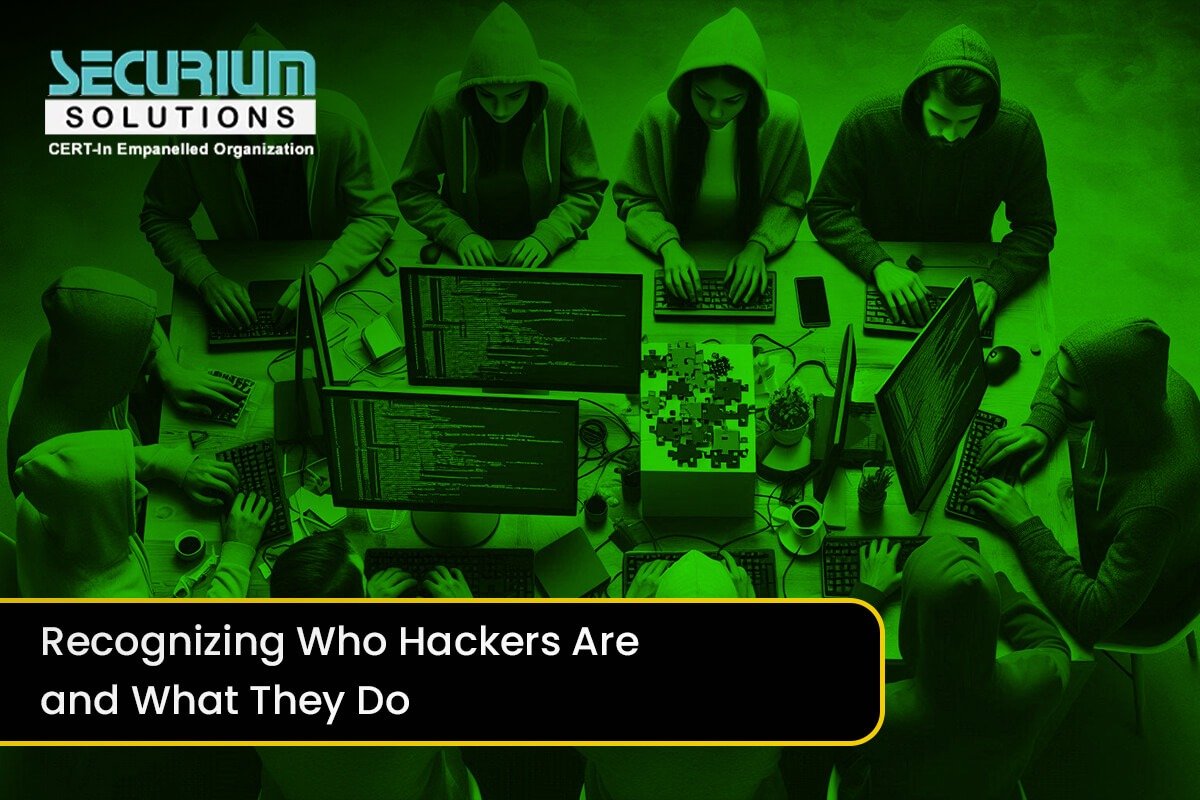In this post, the reader will find many kinds of hackers: white hats, black hats, gray hats, script kiddies, hacktivists, nation-state hackers, cyber thieves, blue hats and purple hats. In order for us to improve on security and ethical hacking practice, it is very important to understand how and on what grounds they operate.
1. White Hat Hackers
A white hat hacker is a favorable security specialist, who is employed by the organizations he protects, for the purpose of detecting and resolving vulnerabilities in their systems in their ways of prevention. They seek permission for their activities and take steps which shield information without weakening the existing security practices.
(A). Roles
White hat hackers do penetration tests, vulnerability assessment and evaluation, and other general security which helps in awareness of all risks. They also are involved in an incident response, cybersafety education, security tools creation, and research work; this eventually contributes to the improvement of security in the organization and confidentiality of information.
(B). Certifications
Certifications and licensing such as Certified Ethical Hacker (C.E.H) and Offensive Security Certified Professional (O.S.C.P).
2. Black Hat Hackers
A black hat hacker is someone who takes advantage of system loopholes and carries out malicious acts for personal undeserved gain. A black hat hacker abuses the system with no authority, inflicting damages and compromising on data security for profit, or for ulterior motives.
(A). Roles
Cybercriminals of this kind have the abilities to perform data breach, commit identity theft or deploy ransom ware ‘hacking black’ hat hackers’ are suited for offensive pursuits; they create viruses, leverage system flaws, and traffic the information on the black market and these place individuals, groups and organizations in serious danger.
(B). Motivations
For monetary benefits, for political reasons, to take vengeance, or just for the simple fun of it, people hack for a variety of reasons. And sometimes their ways might also be very harmful which leads to legal issues for them as well as financial loss for the victims.
(C). Consequences
Anyone caught participating in any Blackhat activity is facing criminal charges, incarceration, and imposition of large fines. Organizations, on the other hand; could incur damage to their reputation, lose customers’ confidence, and incur excessive costs following plate breaches.
3. Gray Hat Hackers
Even though most gray-hat hackers do not have permission, they nevertheless explore and ‘hack’ vulnerabilities for the better good. Their hacking is often embedded in an ethical and illegal middle ground where they enjoy breaking the law, but on some ethical considerations.
Gray hackers practice such illegal activities whereby they test systems without obtaining authorization from their owners often posting results of their tests. They get involved in messages and discussions, help economies mentioning unclaimed bugs, create and apply assistive applications for testing and evaluating security, as well as searching for vulnerabilities.
(A). Script Kiddies
Kiddie Slope Derivations and Motives Script kiddies tend to be new in the hacking industry and always depend on hacking scripts and tools when carrying out hacking attacks as they may not understand how those technologies work. Many of them are seeking the adrenaline of a challenge or the attention they will get from their peers through such criminal acts.
(B). Motivation
Most script kiddies are motivated by curiosity, the need for recognition and fame, and or for the game of hacking. They are unlikely to need financial benefits or political ambitions rather, they want to show off to fellow members of course concerning hacking activities or want to become famous through any means.
(C). Impact
The consequences of script kiddies cannot be underestimated as through their attacks services can be interrupted, systems breached, and data lost. Though they mostly lack practical skills, their efforts can prove to be a big blow to many as losses are always incurred, not to mention the damage to the organization’s image.
4. Hacktivists
Hacktivists are people and organizations that engage in hacking as a means of advancing their political, social and other ideologies. They pursue change through service disruptions, website vandalism, and compromising secure information by targeting unjust companies and organizations.
(A). Motivation
Hacktivists, as opposed to malicious hackers and cyber criminals, are acting out their seeks in favor of some political view or social mission or even protect ecology from harm. Instead of bombarding the nation with propaganda, they make use of the weapons of information and technology at their disposal.
(B). Methods
Common methods used by hacktivists include website defacement, DDoS attacks, leaking data to the public, and posting about their cause on social networks. All these activities aim at ruining the image and the day to day running of the resourceful organizations in question while focusing many people’s attention on the issues.
(C). Notable Examples
Other notable hacktivist groups include Anonymous that has targeted and launched various operations against the governments and corporates and LulzSec that focused on private companies like Sony to raise concerns on privacy and security violations.
5. Nation-State Hackers
A nation-state hacker, also called a government hacker, is typically a hacker who works for a government and is sponsored by it for espionage, sabotage or warfare in cyberspace. They are able to use ample resources and advanced methods to penetrate external regimes, gathering intelligence, causing disruption on key infrastructures, and fulfilling geo-strategic objectives which often involve being anonymous to remain undetected.
(A). Objectives
Most of nation-state sponsored hackers are crushing their targets, resisting enemies, espionaging, espionaging sensitive information, promoting controversial agendas in a control of militant parties, etc. Their operations are frequently in support of military, economic or other strategic goals.
(B). Techniques
They conduct well-coordinated activities comprising of advanced persistent threats (APTs), zero-day attacks, phishing, and malware installations. It permits quiet penetration and extended dwell time Pacific within the system of the victimized entity.
(C). Examples
Popular instances are APT28, known for Russia, attacks the political elite, and Stuxnet, a computer worm developed by the U.S. and Israel to attack Iran’s nuclear energy facilities – both highlight the cyber war.




